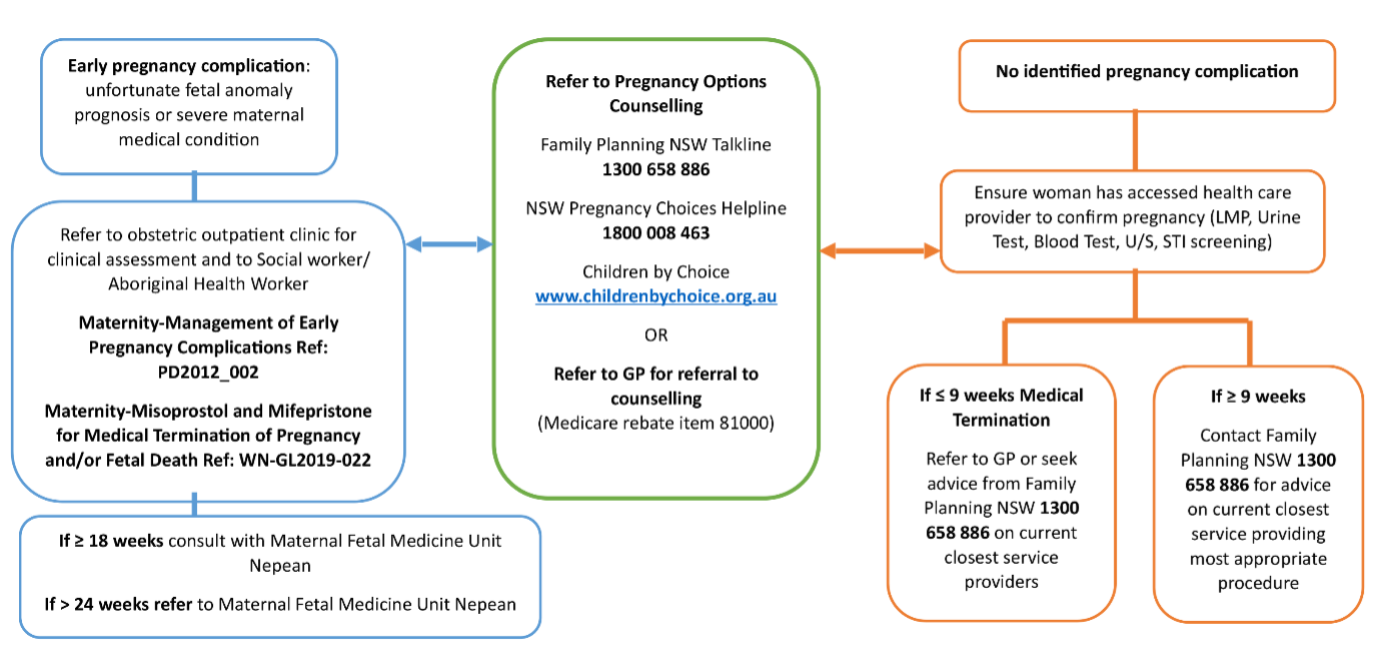Orange Hospital has been prohibiting non-medically essential abortions since earlier this year, but a statement from the LHD today seems to be a back-down.
Abortion access is firmly back in the Australian public discourse with the news today that at least one rural NSW hospital is actively prohibiting its staff from performing any abortion other than for the most dire medical reasons.
The ABC reported this morning that Orange Hospital in regional NSW has ordered its staff to no longer provide abortions for patients with “no identified pregnancy complications”.
Orange Hospital is a public facility, operated by NSW Health via the Western NSW Local Health District. It is therefore not affiliated with any religious institution. Abortion, both medical and surgical, is legal in New South Wales.
Specifically, in New South Wales, you can have an abortion performed by a doctor up to the 22nd week of pregnancy. After 22 weeks, two doctors must approve the abortion and it must take place in a hospital or approved medical facility.
In a statement issued to HSD this afternoon the WNSW LHD executive said services which had been provided in the past “will be restored”.
“The WNSWLHD Executive has assessed immediate matters at Orange Hospital, and the level of abortion services which has historically been provided at the facility will be restored and available to the community,” said the statement.
“In line with the next steps NSW Health is taking to enhance access to safe abortion care, WNSWLHD is also undertaking a separate assessment and review of access to services across public facilities in Western NSW.
“This review commenced recently and is a separate consideration to matters specific to Orange Hospital and has not yet developed any recommendations.”
A document leaked to the ABC shows a flowchart sent to Orange Hospital staff on Monday of this week:

In short, only women with foetal anomalies or maternal medical conditions have been offered an abortion at Orange Hospital. The rest have been referred to a GP or Family Planning NSW.
The nearest Family Planning clinic to Orange Hospital is almost two hours away, does not provide surgical terminations and does not open on weekends. The wait time to see a GP in Orange is believed to currently be about two weeks.
Staff at the hospital told the ABC that abortions had been performed at Orange as a matter of routine prior to this, even when staffing levels were “stretched”.
“Surgical terminations were absolutely being provided here. It didn’t matter if there was a complication or not,” one hospital staffer was quoted by the ABC.
“We would find a way to provide it, if it was needed.”
Under NSW law, clinicians who are conscientious objectors to abortion can refuse to provide the procedure provided they disclose their position to the patient and refer them to another practitioner as soon as possible.
However, the conscientious objection clause does not apply to either hospital executives and LHD management staff.
According to the ABC, the executive of the Orange Hospital told the ob/gyn staff to stop providing terminations for non-medical reasons earlier this year.
The general manager of Orange Hospital is Catherine Nowlan, who has been in the role for almost 13 years. Chair of the WNSW LHD is Matthew Irvine, and its CEO is Mark Spittal.
Despite being decriminalised across the country, abortion has returned to public discourse in the wake of a one-vote defeat of a late-abortion ban in South Australia recently, and a threat to re-criminalise the procedure made during the recent Queensland election campaign.
Federal opposition leader Peter Dutton was reported to have told his party members to cease talking about abortion at the risk of losing votes, but Senator Matt Canavan said yesterday that he would continue to pursue a ban on what he calls “live abortion”.
According to Professor Kirsten Black, academic gynaecologist at the University of Sydney and a Fellow of the Royal Australian and New Zealand College of Obstetricians (RANZCOG), the move to decriminalise abortion has done little to increase access to termination services across NSW public hospitals, with referral pathways either unclear or non-existent for patients and GPs attempting to access hospital-based services.
“Decriminalisation was meant to improve access, and actually it hasn’t improved access at all,” Professor Black told Health Services Daily.
“We still have very little public provision, so women have to fork out like $900 for a surgical abortion, about $500 for medical abortion, and many women just can’t afford that.
“Most hospitals don’t have [referral] pathways. There are no transparent pathways in most LHDs, and some LHDs have no pathway to abortion care, so the GP has nowhere obvious to send the patient, [and] the patient has nowhere obvious to present.
“In special circumstances, if there’s high socioeconomic need or high medical need, then the GP has to make an individual call to a doctor in the hospital to try and arrange for that patient to be seen.
“We know that most obstetricians and gynaecologists agree to abortion, and most of the public agree [about] access to abortion, it’s just a few people in the hospital, a few executives [who are against it].
“Abortion is healthcare, [and] there needs to be a system for public hospitals to manage to provide access.
“New South Wales is totally underperforming in this regard.”
Insufficient funding remained a crucial barrier to the expansion of public termination services statewide, Professor Black said, with community advocacy key to provoking tangible action from NSW government to improve access to services.
“Health services are saying there’s been no funding allocated to set up [formal termination] services, they’ve [been] given a lot of funding for menopause services but no funding for termination of pregnancy, so there needs to be a funding commitment from New South Wales Health to develop these services,” she said.
“Change needs to come from the community putting pressure on government.
“They won’t listen to me as an expert, it needs to come from media and from the community.”
Dr Evonne Ong, associate medical director at Family Planning NSW, told Health Services Daily there was “still work to be done” to expand access to formal termination services through the public sector, in particular hospital-based services and services available in regional and rural areas.
“We know accessing abortions can be hard for people, especially if they live in rural and remote areas of NSW,” Dr Ong said.
“Telehealth reduces some of the access issues we know exist for people in regional areas who may otherwise have to travel significant distances for care.
“However, people in regional and rural areas still need to find appropriate ultrasound and after-care services near home and we know this can be a challenge.
“In NSW, Family Planning Australia has worked with NSW Health to deliver the SEARCH project, [which] trains local health workers to provide services, like medical abortions and long-acting reversible contraceptives, in their communities, growing the network of rural and regional medical abortion providers.
“NSW recognises abortion as healthcare, but there is still work to be done to improve access to services in hospitals.”
In a statement to Health Services Daily, a spokesperson for NSW Health said abortion services were available across the majority of NSW LHDs and the government remained committed to delivering “safe access to abortion care” statewide, with $3.5 million dedicated over four years to expanding abortion services in the 2023 state budget and a total of $2 million pledged to support the SEARCH project for rural and regional NSW.
“Affordable and timely access to abortion services is a whole of sector responsibility shared by the public health system, private providers, primary care and accredited non−government organisations,” the NSW Health spokesperson said.
“Termination of pregnancy is provided in most local health districts in NSW. In most cases, medical or surgical abortions can be provided in the community or non-admitted settings.
“NSW public hospitals primarily provide abortion care for women with complicated cases and later term pregnancy gestations. This includes acceptance of referrals from other abortion providers for women experiencing complications.
“Local health districts determine the provision of abortion care based on local need and service capacity. Several local health districts have established dedicated medical abortion care services within the Women’s Health Service, Sexual Health Service or Community Health Service, or provide funding support to a local Community Women’s Health Centre (NGO) service.
“Where services are not available, referral pathways are in place to direct women to service providers who can provide safe and timely access to care. All local health districts referral information is in line with requirements of the Abortion Law Reform Act 2019.
“Personal beliefs of staff cannot impact a woman’s right to access abortion services. If individual clinicians conscientiously object, referral pathways are in place to ensure women can safely access care.”



